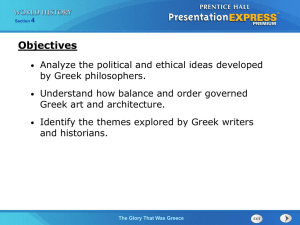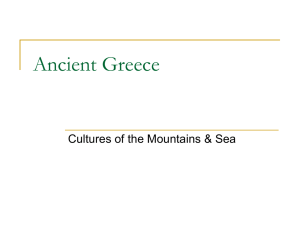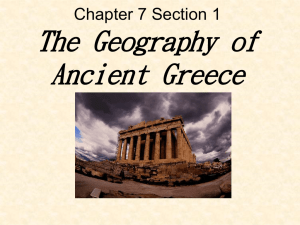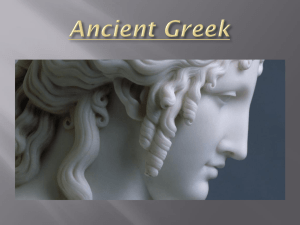The Glory that was Greece
advertisement
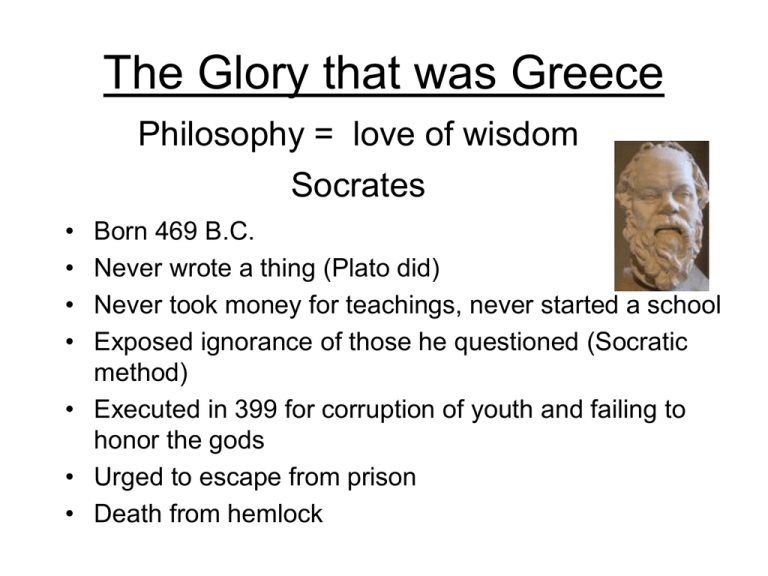
The Glory that was Greece Philosophy = love of wisdom Socrates • • • • Born 469 B.C. Never wrote a thing (Plato did) Never took money for teachings, never started a school Exposed ignorance of those he questioned (Socratic method) • Executed in 399 for corruption of youth and failing to honor the gods • Urged to escape from prison • Death from hemlock The Death of Socrates Painted in 1787 By Jacques-Louis David The Glory that was Greece Philosophy = love of wisdom Plato • After execution, distrusts democracy, leaves Athens • Returns in 387 and founds the “Academy” • Writings like The Republic, deal with construction of ideal society – State should regulate every aspect of citizen’s life – Three classes- workers, soldiers, and philosophers – Censorship of music & poetry- (ETHOS) – Abolition of private property The Glory that was Greece Philosophy = love of wisdom Aristotle • Analyzed all forms of government found good and bad examples of each • Favored rule by single strong and virtuous ruler • 335 started school- Lyceum (competition with the Academy) • Lecture in morning, research afternoon • “Metaphysics” he disagrees with Plato • Alexander’s tutor The Glory that was Greece Architecture • Architecture = perfect balance of harmony and unity • Greek Columns- Ionic and Doric The Glory that was Greece Architecture The Parthenon Built to honor the god Athena Located on the Acropolis- proud monument of classical Greece The Glory that was Greece Art • Sculpture of gods, athletes, and famous men The Glory that was Greece Art • Only Greek Art that survives is on vases • Show Greek life The Glory that was Greece Literature • Epics of Homer • Poetry of Sappho THE MOON by: Sappho The stars about the lovely moon Fade back and vanish very soon, When, round and full, her silver face Swims into sight, and lights all space. The Glory that was Greece Drama • • • • • • • Religious festivals- honored gods Large outdoor theatres Male actors wore elaborate costumes and masks Chorus sang or chanted Based on popular myths and legends Tragedies like Antigone Comedies The Glory that was Greece “Father of History” Herodotus • Wrote The Persian Wars • unbiased- though still reflected his own views • Believed Greeks won because they were morally right (right vs might) Thucydides • Wrote about the Peloponnesian War (Sparta vs Athens) • Athenian, but tried to be fair to both sides FOR TOMORROW Read Chapter 5 Section 5 Alexander and the Hellenistic Age BEGIN REVIEWING NOTES FOR EXAM ON THURSDAY
